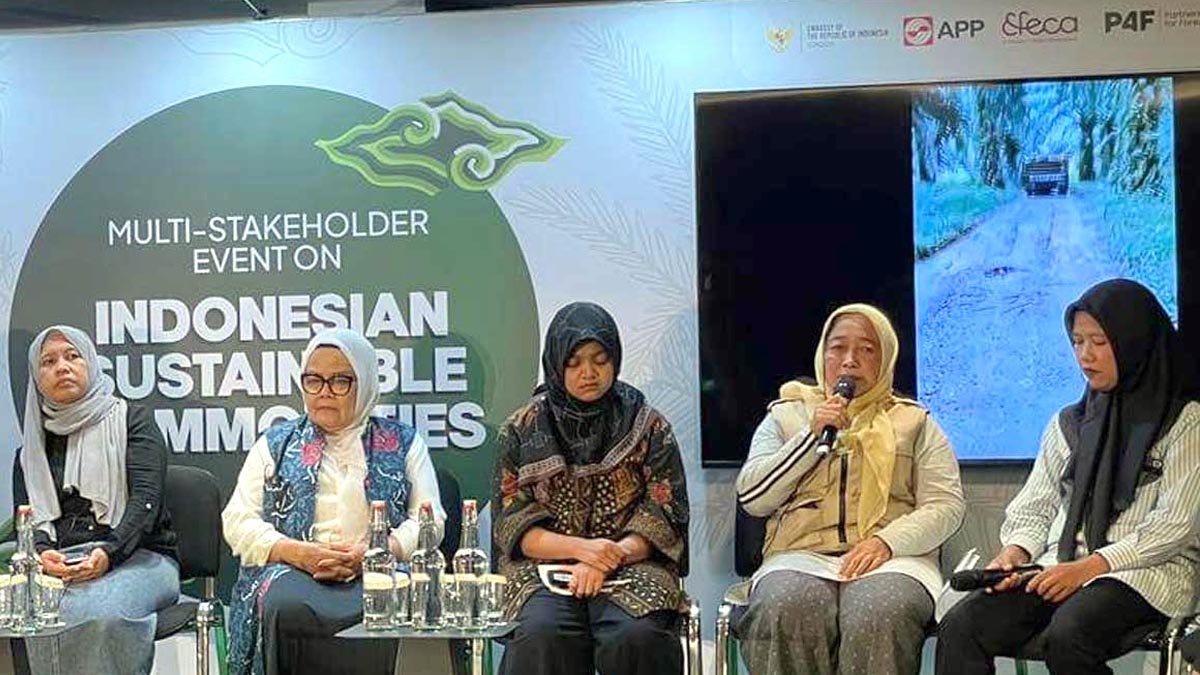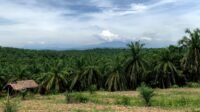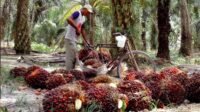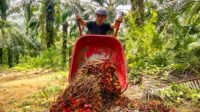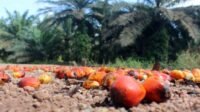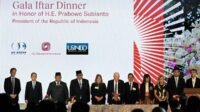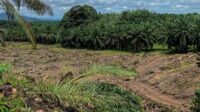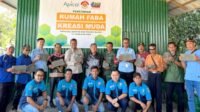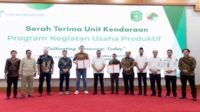PALMOILMAGAZINE, SIMALUNGUN – Nurhayati (52), fondly known as Bu Nur, never imagined her life as a smallholder palm oil farmer would take her from her village in Simalungun, North Sumatra, to international forums in Brussels, London, and Rome. Today, she stands as one of the faces representing smallholder farmers on the global stage.
For the past 20 years, Bu Nur has managed her own oil palm plantation. What began as a modest one-hectare plot has now expanded to three hectares, sustaining her family’s livelihood. “Since joining RSPO certification with KPUD Lestari in 2018, my income has improved. That allowed me to buy two more hectares and support my three children’s education,” she recalled, as quoted by Palmoilmagazine.com from Fortasbi on Friday (Sept 26, 2025).
This September, she received an extraordinary opportunity: being selected as one of nine Indonesian women delegates, facilitated by the Ministry of Foreign Affairs, to join a roadshow in Brussels, London, and Rome. In those international forums, she voiced the concerns of palm oil smallholders—especially women—over the European Union’s new Deforestation Regulation (EUDR).
Also Read:
The Burden on Women in Palm Oil
For Bu Nur, palm oil is more than just an export commodity—it is food, education, and family survival. “When palm oil cannot be sold, women are the ones who suffer most. We are the ones who must manage the kitchen, children’s schooling, and household needs,” she said firmly.
As a member of the Gender Committee of KPUD Lestari, Bu Nur actively encourages women’s participation in cooperatives. Together with her group, she has proven that RSPO certification can transform plantation management into a more sustainable practice. “We no longer use excessive chemicals. We apply organic fertilizer from livestock waste, avoid polluting rivers, and do not employ pregnant women or children,” she explained.
Yet, all these efforts risk being disregarded if the EUDR fails to recognize RSPO certification. “Joining certification is not easy, and it’s costly. We only want our hard work to be respected,” she said during her testimony before stakeholders in London.
From Palm Oil to Palm Frond Crafts
Bu Nur’s income does not rely solely on palm oil harvests. Together with a community of women in her village, she processes palm fronds into brooms and handicrafts. The group, known as Carli Angels (Palm Frond Seekers), not only earns extra income but also strengthens women’s role in supporting household economies.
“For us, palm oil is life itself. We will fight to care for it and to defend it,” she said with bright eyes.
Bu Nur’s presence on the international stage is a reminder that behind the big numbers of CPO exports lie millions of smallholder stories—especially those of women. They do not reject sustainability regulations but hope such policies are applied fairly and gradually, without destroying local livelihoods.
She may only be a farmer with three hectares of land, but her voice now resonates at the heart of Europe—delivering a simple yet powerful message: true sustainability must go hand in hand with fairness for smallholders. (P2)

